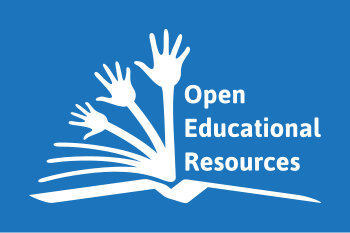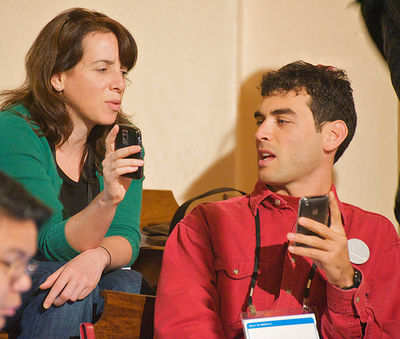Teaching approach
| Practice Context | |
|---|---|
| Practice Context Course Guide | Introduction & Learning Outcomes | Getting started | Teaching approach | Course schedule |
| Assessment | Practice Context assessment | Study plan | Developing an assessment portfolio | Referencing |
An important feature of this course is that it uses Open Educational Resources (OER) as the content for your studies. Open Educational Resources are digital materials that are freely available to educators, enrolled students and informal learners. OER are increasingly being integrated in open and distance education. They tend to use open copyright licensing conditions (e.g., Public Domain or Creative Commons), making them more accessible and freely available, and able to be reused, revised, remixed, redistributed and retained David Wiley, 2014. (Be sure and check the license beforehand.)
Contents
Pedagogy of discovery
An important feature of this course is the learning and teaching approach or pedagogy.
- Pedagogy means "the art, science, or profession of teaching" Merriam-Webster Dictionary
In Practice Context we use the ‘pedagogy of discovery’ (including self-discovery) to encourage a wide-ranging learning approach, also called free-range learning. This approach includes self-directed content gathering and analysis rather than content that is pre-selected for you. This approach is deliberate and allows you to seek out information and areas of study of personal and direct interest that are relevant to your work context. For more information, you are asked to view the 13 min video: The Pedagogy of Discovery: Enabling Free Range Learning presented by Emeritus Professor James C Taylor (2013).
Each Unit and Topic within the StudyDesk will guide you to explore relevant learning for your specific work situation.
Learning Literacies in a Digital Age (LLiDA) “Framework of Frameworks”
The “Framework of Frameworks” is a cornerstone of the pedagogy in Practice Context. The LLiDA framework is represented in the table below. The Framework demonstrates the component competencies you will develop throughout your studies, all of which are important skills required in the Digital Age. These competencies include: metacognition, academic practices and information literacy, communication and collaboration skills, media, ICT, digital and computer literacy, greater participation and engagement with citizenship which enhances your professional role.
| |
Component competences |
| Learning to learn, metacognition | Reflection, Strategic planning, Self-evaluation, Self-analysis, Organisation (time, etc.) |
| Academic practice, study skills | Comprehension, Reading/apprehension, Organisation (knowledge), Synthesis, Argumentation, Problem-solving, Research skills, Academic writing, Specific subject discipline skills as appropriate |
| Information literacy | Identification, accession, organisation, evaluation |
| Communication and collaboration skills | Teamwork, Networking, 'Speaking' and 'listening' skills (see below for different media) |
| Media literacy (also 'visual' and 'audio' and 'video' literacies) | Critical 'reading', Creative production |
| ICT/digital/computer literacy | Keyboard skills, Use of capture technologies, Use of analysis tools, Use of presentation tools, General navigation/UI skills, Adaptivity Agility Confidence/exploration |
| Employability | Self-regulation, Team working, Problem solving, Business and customer awareness, Innovation/enterprise |
| Citizenship | Participation and engagement, Ethicality/responsibility, Political, social, personal responsibility |
- (Source: Beetham, H., McGill, L. & Littlejohn, A. (2009). Thriving in the 21st Century: Learning Literacies for the Digital Age (LliDA project. The Caledonian Academy, Glasgow Caledonian University. Retrieved from http://www.caledonianacademy.net/spaces/LLiDA/uploads/Main/LLiDAreportJune09.pdf.)
While this all could seem a little daunting for some, please remember you will not be alone on your information seeking journey. You will have clear guidance through e-tivities (electronic/online activities) as to the types of information you could be seeking. Formally enrolled learners will also have opportunities to share findings with fellow participants and the course facilitator using asynchronous(online in your own time frame) discussions. Other opportunites for sharing will be negotiated.
Conclusion
Upon successful completion of this course, not only will you know more about the dual role of a professional tertiary educator and your work context, your online research skills should also have improved. You will hopefully be more adept at finding and evaluating digital information, developing more skills for ascertaining the quality and reliability of information and using it ethically. Thereby enhancing your digital information literacy capability.
Reference material
Beetham, H., McGill, L. & Littlejohn, A. (2009). Thriving in the 21st Century: Learning Literacies for the Digital Age (LliDA project. The Caledonian Academy, Glasgow Caledonian University. Retrieved from http://www.caledonianacademy.net/spaces/LLiDA/uploads/Main/LLiDAreportJune09.pdf
Harris, R. (1997). Evaluating Internet Research Sources. VirtualSalt. Retrieved from http://www.virtualsalt.com/evaluat8it.htm.
Salmon, G. (2002). E-learning activities: The Key to Active Online Learning. London: Kogan. Retrieved from http://web.ebscohost.com/ehost/ebookviewer/ebook/nlebk_115618_AN?sid=58fd8e05-660d-44df-a1ca-935c5636a7f9@sessionmgr14&vid=1.

